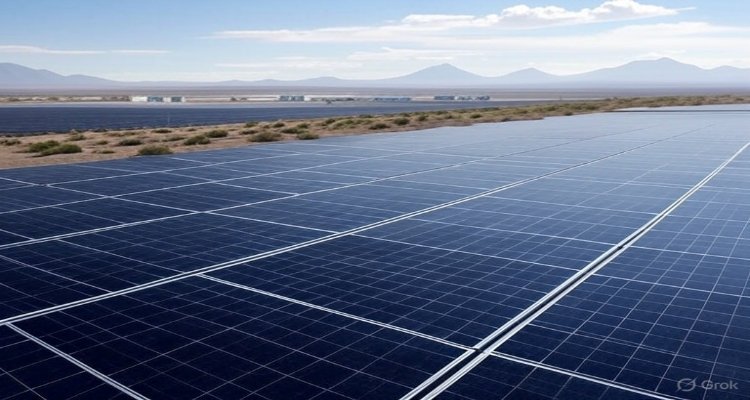What Happens When the World Runs on Nothing But Batteries?

As the world shifts to battery power, what are the hidden costs, benefits, and consequences of a planet fueled entirely by stored energy?
Introduction: A Future Fully Charged
Imagine a morning where every light, every car, every plane, and every power plant is powered not by oil, gas, or coal—but by batteries. Streets are silent except for the hum of electric engines, skyscrapers run on stored solar energy, and planes glide across continents on electric propulsion. This is not a scene from a sci-fi novel. It’s a scenario energy experts say could define the mid-21st century. But the question lingers: what happens when the world runs on nothing but batteries?
Context & Background: The Push Toward Battery Power
The global push to decarbonize has made batteries central to energy transition. Electric vehicles (EVs) are replacing gasoline engines, grid-scale batteries are balancing renewable energy sources, and portable electronics rely more than ever on advanced storage.
- Global EV adoption is expected to surpass 400 million vehicles by 2040.
- Lithium-ion batteries dominate the market, with global demand projected to grow fivefold by 2035.
- Governments worldwide are investing billions in battery research and supply chain security, with the U.S., EU, China, and India racing to secure rare minerals.
Yet this shift brings not just opportunities, but profound challenges.
Main Developments: The Promise and the Problem
On paper, a battery-powered world promises clean skies, reduced greenhouse gas emissions, and independence from volatile oil markets. Cities would be quieter, air pollution could plummet, and renewables would finally have reliable storage to stabilize grids.
But the catch lies in the resources required. Batteries rely on lithium, cobalt, nickel, and rare earths—minerals often mined under difficult conditions. Communities in the Democratic Republic of Congo, Chile’s Atacama Desert, and Indonesia are already bearing the brunt of extraction.
Even recycling—seen as a solution—faces hurdles. Today, only about 5–10% of lithium-ion batteries are recycled globally. Without breakthroughs, landfills could overflow with hazardous waste, undermining the very sustainability batteries promise.
Expert Insight: The Balancing Act
“Batteries are not a silver bullet,” says Dr. Karen Andrews, an energy transition analyst at the International Energy Forum. “They solve the emissions problem at the point of use, but shift environmental and geopolitical pressures upstream to mining and manufacturing.”
Public sentiment, however, remains largely hopeful. A Pew Research survey in 2024 found that 72% of Americans support investing in battery technologies, believing the benefits outweigh the risks. Yet skepticism is growing as news of mining conflicts, environmental damage, and rising costs surface.
Impact & Implications: Who Wins, Who Loses?
If the world runs on nothing but batteries, the winners will likely be nations that control raw materials, hold recycling technologies, or dominate manufacturing—China currently leads with over 75% of global battery production. Tech giants and automakers will also thrive.
The losers, however, could be developing nations exploited for resources, workers in fossil fuel industries facing displacement, and ecosystems destroyed by extraction.
At a consumer level, societies would see quieter cities, cheaper long-term energy, and reduced dependence on oil. But they may also face higher upfront costs, frequent upgrades, and growing concerns about digital and energy security as battery-powered grids become cyber targets.
Conclusion: The Double-Edged Future
A battery-driven planet could mark humanity’s biggest step toward sustainability—or its next great crisis. The future hinges not on whether we embrace batteries, but how we build, recycle, and regulate them. The choices made today will decide whether the world runs smoothly on clean, silent power—or stumbles into new forms of scarcity and inequality.
As the world plugs in, one truth remains: running on nothing but batteries is not just about energy—it’s about reimagining the very structure of modern civilization.
Disclaimer :This article is for informational purposes only. It does not constitute financial, environmental, or policy advice.










